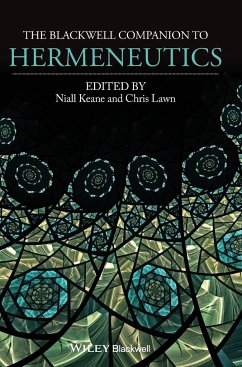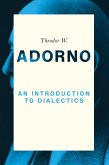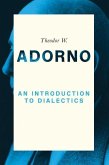A Companion to Hermeneutics is a collection of original essays from leading international scholars that provide a definitive historical and critical compendium of philosophical hermeneutics.
_ Offers a definitive historical, systematic, and critical compendium of hermeneutics
_ Represents state-of-the-art thinking on the major themes, topics, concepts and figures of the hermeneutic tradition in philosophy and those who have influenced hermeneutic thought, including Kant, Hegel, Schleiermacher Dilthey, Heidegger, Gadamer, Ricoeur, Foucault, Habermas, and Rorty
_ Explores the art and theory of interpretation as it intersects with a number of philosophical and inter-disciplinary areas, including humanism, theology, literature, politics, education and law
_ Features contributions from an international cast of leading and upcoming scholars, who offer historically informed, philosophically comprehensive, and critically astute contributions in their individual fields of expertise
_ Written to be accessible to interested non-specialists, as well asprofessional philosophers
_ Offers a definitive historical, systematic, and critical compendium of hermeneutics
_ Represents state-of-the-art thinking on the major themes, topics, concepts and figures of the hermeneutic tradition in philosophy and those who have influenced hermeneutic thought, including Kant, Hegel, Schleiermacher Dilthey, Heidegger, Gadamer, Ricoeur, Foucault, Habermas, and Rorty
_ Explores the art and theory of interpretation as it intersects with a number of philosophical and inter-disciplinary areas, including humanism, theology, literature, politics, education and law
_ Features contributions from an international cast of leading and upcoming scholars, who offer historically informed, philosophically comprehensive, and critically astute contributions in their individual fields of expertise
_ Written to be accessible to interested non-specialists, as well asprofessional philosophers
"Wiley Blackwell's A Companion to Hermeneutics is destined to become an invaluable resource for its incisive discussions of all aspects of hermeneutics within the field of philosophy."
Burt Hopkins, Seattle University
"This is an extraordinarily rich collection of articles on every aspect of hermeneutics. It covers not just the history of hermeneutics from the ancient Greeks to the present, but also topics ranging from aesthetics and politics to pragmatism and deconstruction as analysed by key thinkers such as Schleiermacher, Dilthey, Heidegger, Gadamer, Vattimo and Apel. This Companion is an essential guide to the hermeneutic tradition."
Dermot Moran, University College Dublin
"Hermeneutics-- the philosophical theory of interpretation--has been one of the most influential strands of European thought over the last two hundred years or more. This comprehensive volume of essays, with contributions by many leading experts in the field, constitutes an ideal point of entry into the hermeneutic tradition. Its range and level of detail will also appeal to those who wish to advance their knowledge of hermeneutic philosophy and its many important consequences."
Peter Dews, University of Essex
Burt Hopkins, Seattle University
"This is an extraordinarily rich collection of articles on every aspect of hermeneutics. It covers not just the history of hermeneutics from the ancient Greeks to the present, but also topics ranging from aesthetics and politics to pragmatism and deconstruction as analysed by key thinkers such as Schleiermacher, Dilthey, Heidegger, Gadamer, Vattimo and Apel. This Companion is an essential guide to the hermeneutic tradition."
Dermot Moran, University College Dublin
"Hermeneutics-- the philosophical theory of interpretation--has been one of the most influential strands of European thought over the last two hundred years or more. This comprehensive volume of essays, with contributions by many leading experts in the field, constitutes an ideal point of entry into the hermeneutic tradition. Its range and level of detail will also appeal to those who wish to advance their knowledge of hermeneutic philosophy and its many important consequences."
Peter Dews, University of Essex








